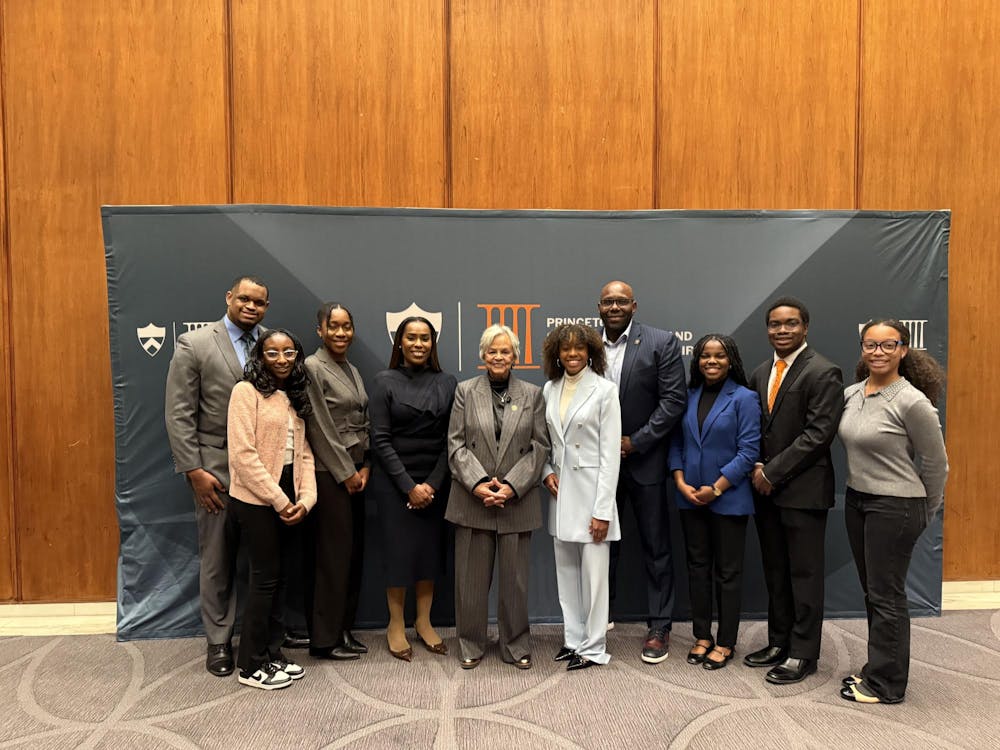Willy Mutunga, Kenya’s former Chief Justice, discussed his time as Chief Justice and the role of global judiciaries on Oct. 17.
Seeing the passage of the new Kenyan constitution, Mutunga took the opportunity to “apply for the job because [he] realized there was a project of creating a new judiciary,” he said. The Judicial Service Commission was, at the time, in search of a new Chief Justice and wanted to keep the vetting process as open as possible. Mutunga, the final candidate, was appointed to the court by the President of Kenya at the time, Mwai Kibaki.
Mutunga explained the basis for the Kenyan constitution, including the recent changes to the document. The changes developed a new Supreme Court in 2010, which replaced the Appeals Court as the nation's highest court.
“The constitution gives the judiciary a totally different role than before,” Mutunga said in the lecture. “The bedrock of this judiciary is to instill in Kenyans that judges must be qualified, and not even think about receiving a bribe.”
Following his description about the fidelity of the court, Mutunga continued to describe the actual development of the jurisprudence. The Kenyan constitution is viewed as the center of further development when it is partnered with correct practice.
“Dissenting opinions are actually something that we encourage because it is important in the development of jurisprudence to have different viewpoints,” Mutunga said. He brought up parallels to the U.S. Supreme Court, including how similar values extrapolated from Marbury v. Madison reflect the judicial review in place in the Kenyan government.
Mutunga expanded upon this by explaining that “in times of judicial review, the constitution has codified principles that are important, and [the government] has picked some very good practices and coded them into the document that will propel the nation further.”

In the last portion of his formal lecture, Mutunga illustrated how reforms would take place and the basic framework of the principles associated with the new constitution.
“The framework has four pillars: access to justice, further developing infrastructure, transformative leadership, and promoting the use of technology,” said Mutunga. He said that the implementation of these pillars would help augment the strength of the system of checks and balances set in place.
To generate change in Kenya, where there are court backlogs, Mutunga suggested that the best way to go about creating effective change in that environment would be to advocate for the policies that have the least resistance.
“This notion of the judiciary as a political actor is interesting because of the theory of separation of powers,” Mutunga said. “Judiciaries are an emerging consciousness about change and fighting corruption that a transformative constitution will help open up a lot of spaces that need to be altered.” He also stated that judiciaries become very strong when they deal with unpopular issues.

After the lecture, Mutunga took questions from the audience. Questions pertained to the the nature of jurisprudence of a human rights state, to institution building, and to juvenile justice.
“Children’s courts were not effectively run — or focused on — but in particular using the pillar of technology, young people were able to play a critical role in Kenyan politics in recent years,” Mutunga said.
“I am always fascinated by how a legal system imported from the colonial past is adapted and reclaimed,” Jessica Sarriot GS said. “One of my favorite quotes from the lecture was when he said that ‘liberal democracy is not a Trojan horse for imperialism.’ ”
Sarriot is pursuing a Masters in Public Affairs at the Woodrow Wilson School of Public and International Affairs.
The lecture, entitled “Transforming Judiciaries in the Global South,” took place in Robertson Hall Bowl 016.







